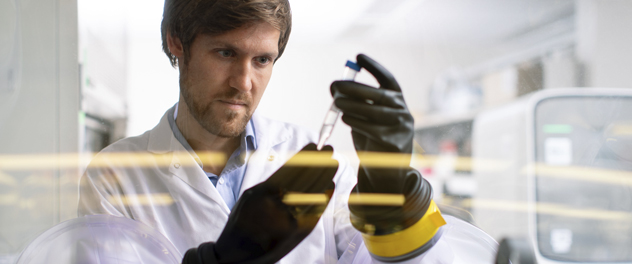 Identifying microbial taxa and metabolites driving outcomes and adverse events of cancer therapy
Identifying microbial taxa and metabolites driving outcomes and adverse events of cancer therapy
Dr. Kashyap's research team is studying how specific bacteria and metabolites affect outcomes of cancer therapy and adverse events from cancer treatment.
Microbiome as a Determinant of Cancer Outcomes
Personalizing treatment has largely focused on pharmacogenomics, which is how people respond to drugs based on their genes, and molecular profiling of specific regions in the body depending on the disease. However, a person's microbiome, which consists of different microorganisms and their genetic content in a body site, and the environment (exposome) contribute to outcomes and side effects of chronic gastrointestinal disorders and cancer treatment.
Researchers can use multi-omics measurements to obtain insight into this multifaceted complexity. Approaches to integrate this multi-omics data, including microbial genetics, as well as the metabolic products of the microbiome and its interactions with the host, will lead to novel hypotheses to test in preclinical animal models.
Together these novel approaches to manipulate the microbiome for therapeutic benefit, collectively known as microbiomics, will change treatment paradigms to ensure the right treatment can be given to the right patient at the right time for the right impact.
 Innovating in Microbiomics for Personalized Approaches to Clinical Therapies (IMPACT)
Innovating in Microbiomics for Personalized Approaches to Clinical Therapies (IMPACT)
IMPACT is a paradigm shift from a one-size-fits-all approach to personalizing treatment strategies based on multi-omics measurements of the microbiome and host, as well as patients' clinical traits to optimize treatment outcomes and minimize adverse events.
To determine which patients are less likely to respond to a cancer treatment or develop an adverse event, we recruited about 2,000 patients with cancer and about 250 healthy controls. This group included people with diverse cancers and different drug combinations across all Mayo Clinic locations as part of a real-world clinical study: Mayo Clinic Cancer Microbiome. This represents one of the largest undertakings of microbiome profiling in patients with cancer nationally.
The lab is developing predictive models based on a person's genetic makeup; microbial pathways, such as those involved in drug metabolism; host exposures; and clinical traits. The unique aspects of the study design used for the Oncobiome project make it directly applicable in the clinical setting. The goal of this undertaking is to develop individualized approaches to improve outcomes and reduce adverse events of cancer therapy.